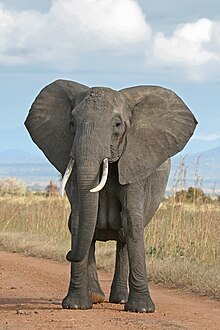
Back إمبراطورية الأويو Arabic Imperiu oyo AST اویو ایمپراتورلوغو AZB Imperi d'Oyo Catalan Říše Oyo Czech Königreich Oyo German Imperio oyo Spanish Oyo kuningriik ET Oyo Inperioa EU Oyo (valtio) Finnish
Oyo Empire Orílẹ̀ Ọba Ọ̀yọ́ (Yoruba) | |||||||||||||
|---|---|---|---|---|---|---|---|---|---|---|---|---|---|
| c. 1600 – c. 1836 [1] | |||||||||||||
 Oyo Empire during the 17th–18th centuries | |||||||||||||
| Status | Empire | ||||||||||||
| Capital |
| ||||||||||||
| Common languages | Yoruba | ||||||||||||
| Religion | Yoruba religion, Islam, Christianity | ||||||||||||
| Government | Constitutional Hereditary Monarchy with Elective features. | ||||||||||||
| Alaafin | |||||||||||||
• ????–1896 | Adeyemi I Alowolodu | ||||||||||||
| Legislature | Oyo Mesi and Ogboni | ||||||||||||
| Area | |||||||||||||
| 1680[2] | 150,000 km2 (58,000 sq mi) | ||||||||||||
| |||||||||||||
| Today part of | Yorubaland · Nigeria · Benin | ||||||||||||

| House of Oranyan | |
|---|---|
Nigerian royal dynasty
  | |
| Parent house | Oodua |
| Current region | Yorubaland |
| Founded | c. 17th century |
| Current head | Interregnum |
| Titles | |
| Style(s) | Kabiyesi Majesty Imperial Highness |
| Members | |
| Connected families | Ife royal family Bini royal family |
| Traditions | Ifá Christianity Islam |
| Motto | A kii r'oba fin l'alede Oyo, o ya e je a loo re Alaafin (Yoruba for "Oyo, Descendants of the Alaafin") |
| Cadet branches | |
The Oyo Empire was a Yoruba empire in West Africa. It was located in present-day southern Benin and western Nigeria (including the South West zone and the western half of the North Central zone). The empire grew to become the largest Yoruba-speaking state through the organizational and administrative efforts of the Yoruba people, trade, as well as the military use of cavalry. The Oyo Empire was one of the most politically important states in Western Africa from the mid-17th to the late 18th century[3] and held sway not only over most of the other kingdoms in Yorubaland, but also over nearby African states, notably the Fon Kingdom of Dahomey in the modern Republic of Benin on its west.